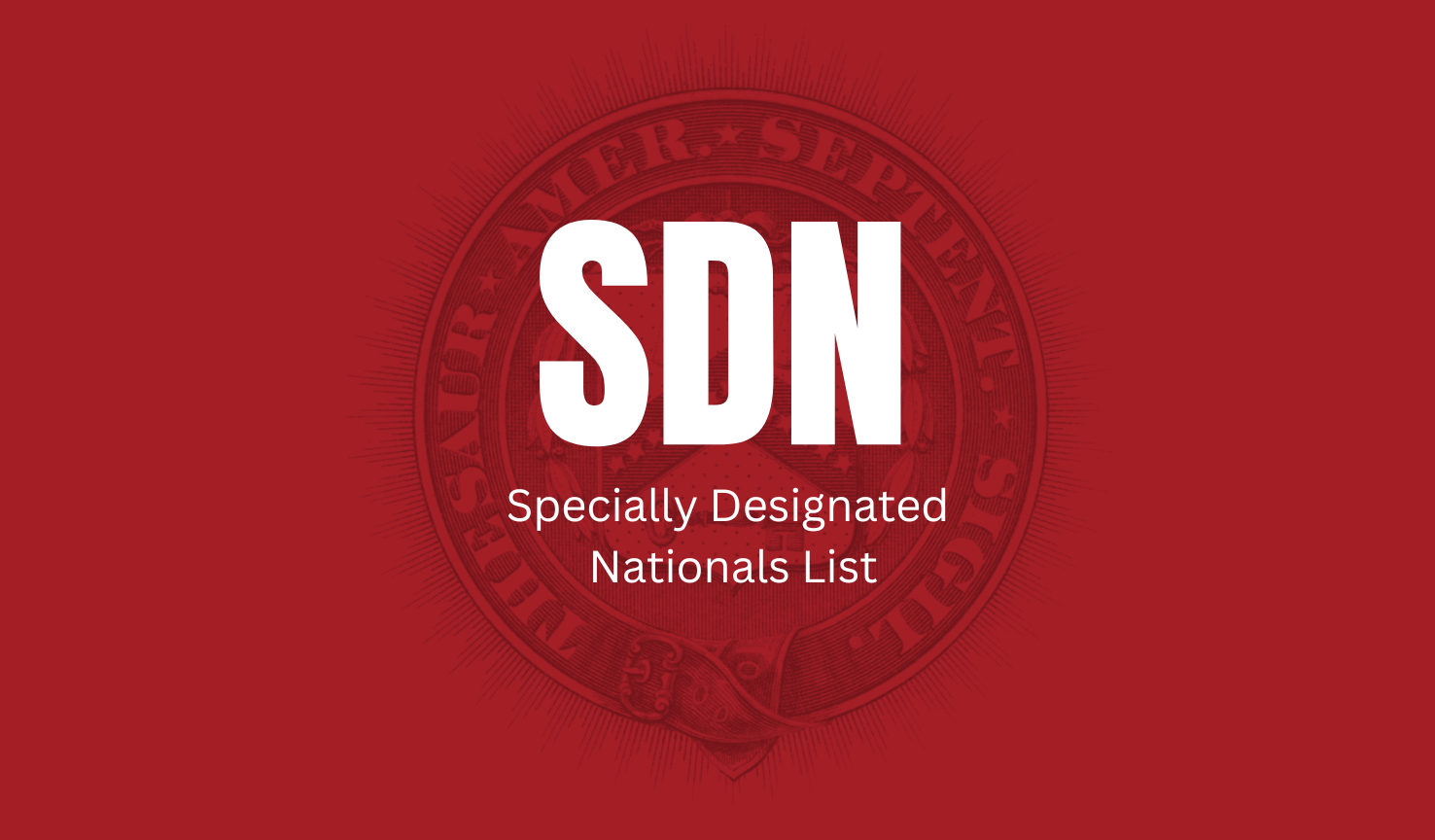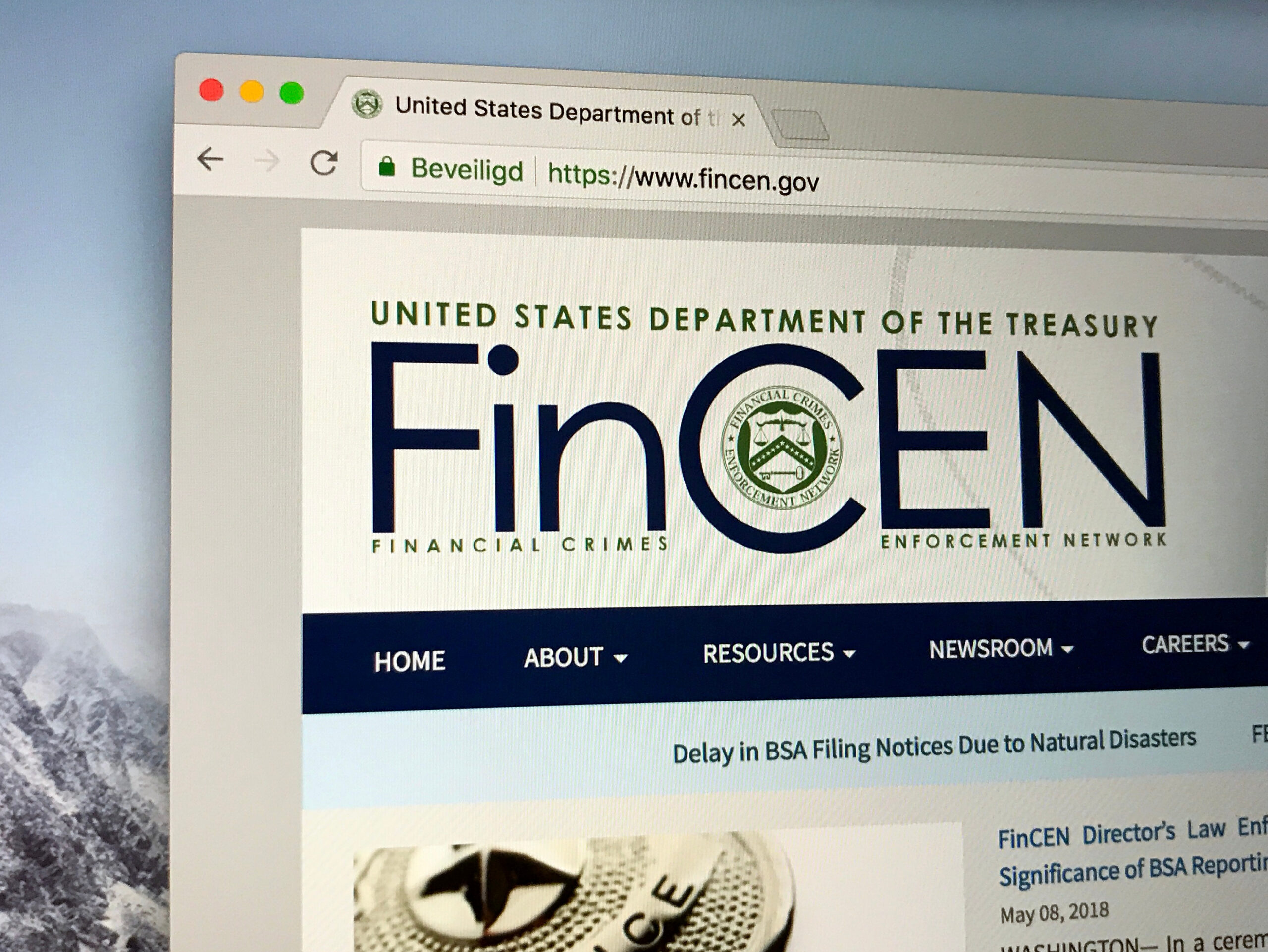OFAC Lawyer
The Office of Foreign Assets Control is responsible for protecting the national security and market interests of the United States on the international stage. This division of the U.S. Department of the Treasury monitors compliance with economic sanctions regarding transactions.
Faced with questions about compliance with sanctions legislation or received a notification from the Office of Foreign Assets Control? Our law firm is ready to offer you comprehensive legal support on all issues related to U.S. sanctions. OFAC lawyers will help review business operations and structures for compliance with sanction requirements, develop a risk-minimizing compliance strategy for your business, and effectively protect your interests in the event of investigations and audits.

We are OFAC Lawyers
OFAC Attorney Anatoliy Yarovyi has represented clients from all over the world. He has knowledge and extensive experience necessary to solve your Sanctions problem

What is OFAC?
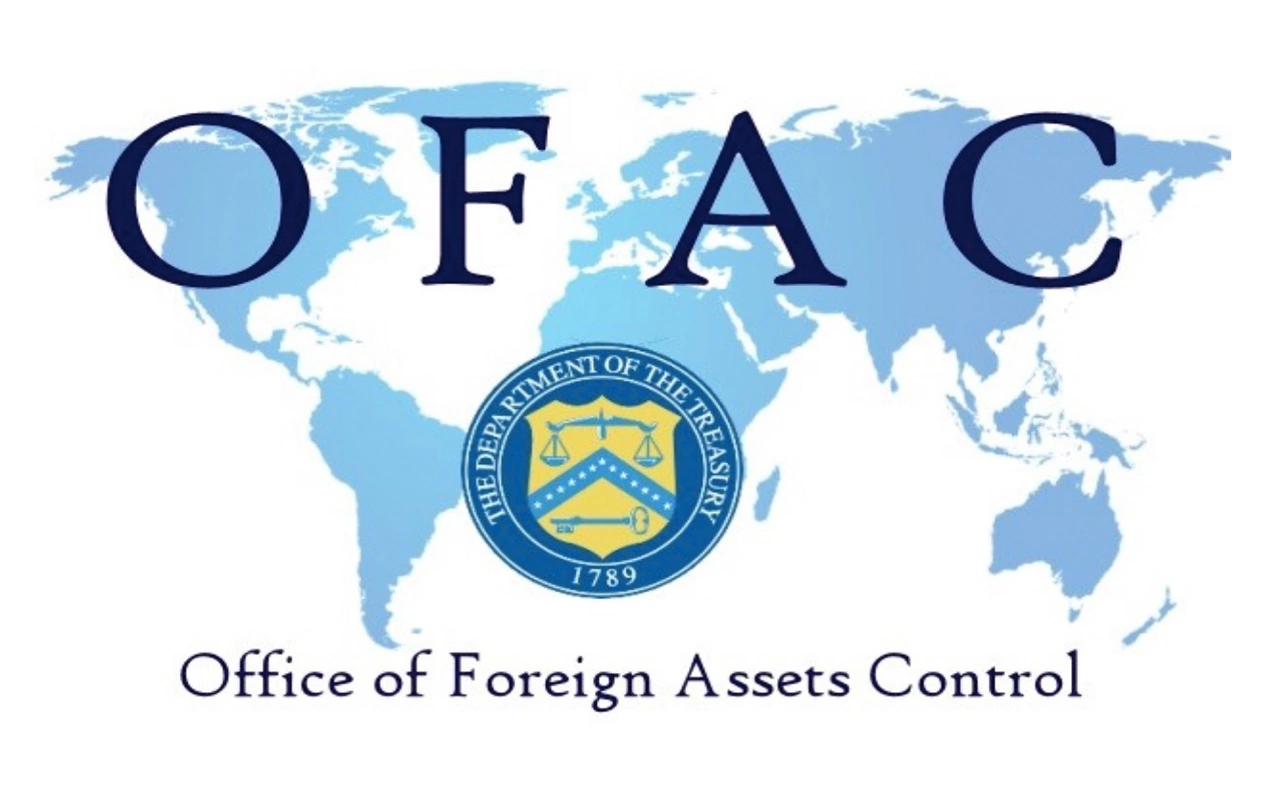
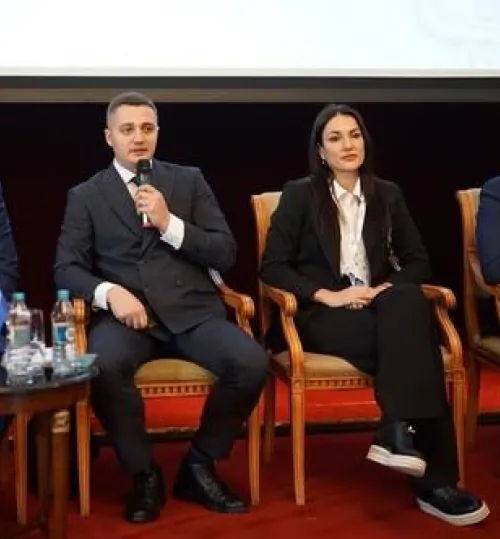
What is OFAC?
The Office of Foreign Assets Control (OFAC), is a division of the U.S. Department of the Treasury. This organization is responsible for implementing and monitoring economic and trade sanctions against foreign states, individuals, and organizations that pose a threat to U.S. national security or foreign policy. These economic sanctions are aimed at protecting U.S. interests and can be applied to governments, terrorist organizations, drug traffickers, and other entities.
The primary mission of OFAC regulations is to ensure the national security of the United States by applying economic pressure on foreign entities that threaten the country’s security or violate international law. The organization oversees the enforcement of sanction programs aimed at restricting financial transactions of individuals and organizations listed in sanction lists.

Who are the OFAC sanctions targeted at?
The activities of OFAC are aimed at limiting the economic influence of entities included in sanction lists. Let’s consider the main groups targeted by OFAC sanctions:
- Foreign countries that threaten international security or violate human rights (Iran, Syria, North Korea);
- Terrorist organizations and their members;
- Organizations and individuals involved in the illegal drug trade;
- Corrupt officials and human rights violators;
- Businesses involved in cybercrime.
If you or your company are facing issues related to OFAC sanctions, don’t hesitate to reach out to our law firm for consultation immediately. Our qualified OFAC sanctions lawyers will help protect your interests and provide recommendations for complying with trade and economic sanctions.
Compliance programs
OFAC compliance program is a set of policies, procedures, and internal regulations that help organizations identify and block potentially prohibited transactions in accordance with current OFAC sanctions.
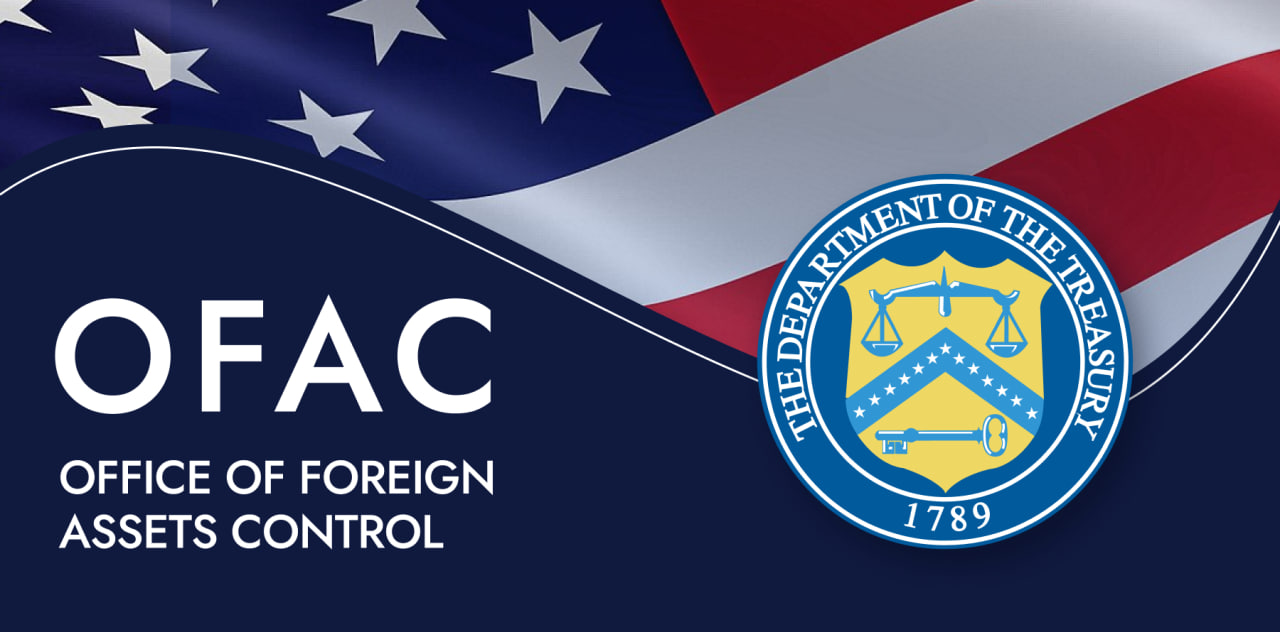
Such programs include:
- The company’s sanctions policy: official documents describing the principles, goals, and standards of activity within the framework of compliance with sanctions legislation;
- Verification tools: software for screening counterparties against special sanctions lists (SDN List, Sectoral Sanctions Identifications, etc.);
- Audit and monitoring: regular internal and external inspections that allow assessing the effectiveness of the program, identifying gaps, and promptly addressing violations;
Who needs to comply with OFAC?
OFAC imposes obligations to comply with sanctions on a wide range of individuals and organizations. These requirements apply not only to U.S. citizens but also to many companies and individuals outside the United States if their activities affect its jurisdiction.
Citizens and residents of the USA
All citizens and permanent residents of the USA are required to comply with OFAC sanctions, regardless of whether they are physically located in the USA or abroad.
American companies
All companies, corporations, partnerships, LLPs, and LLCs registered in the USA, as well as foreign branches and representative offices of American companies, fall under the jurisdiction of American law and are subject to OFAC sanction regimes.
Foreign companies
If a foreign company conducts transactions in US dollars or uses the American financial system (banks, payment systems), it must consider OFAC sanctions lists to avoid transaction blocks and asset freezes.
Banking and financial institutions
When participating in transactions, such institutions are required to check counterparties against sanction lists, block accounts, and report suspicious activities to OFAC.
Types of OFAC Sanctions
The OFAC employs various types of sanctions to protect U.S. national interests and promote international security. For instance, comprehensive sanctions are applied at the level of entire countries, while targeted sanctions are directed at specific individuals and organizations.
But all OFAC sanctions share a common goal – to limit opportunities for illegal activities and violations of international law. If your activities are related to international operations, it’s important to understand how OFAC sanctions work to avoid violations that may result in civil and criminal penalties.
Country-specific sanctions
Country-specific sanctions by OFAC are restrictive measures against foreign governments that pose a threat to U.S. national security or international security. These trade sanctions encompass a wide range of restrictions, including the freezing of financial assets, trade bans, market access limitations, and the severance of diplomatic contacts.
The main goal of country-specific sanctions is to influence governments that violate international norms. Sanctions are used as a means of coercion to change the policies of these countries by restricting their economic freedom.
Smart sanctions
Smart sanctions, also known as “targeted” or “pinpoint” sanctions, are applied to governments, political leaders, terrorist groups, individuals involved in corruption, or organizations linked to cybercrime or drug trafficking.
The main goal of such economic sanctions is to limit the financial and economic capabilities of individuals and organizations that violate international norms, without significantly impacting the economy of an entire country. At the same time, the U.S. directs its actions towards supporting global stability, ensuring accountability for individual actors for their actions, and minimizing damage to the overall economy or civilian population.
Sectoral sanctions
Sectoral sanctions are restrictive measures targeted at specific sectors of the economy that play a crucial role for the country under sanctions. The main goal of sectoral sanctions is to limit economic activity in certain industries to reduce the financial resources of governments, organizations, or individuals involved in illegal or destabilizing activities.
The main goal of sectoral sanctions is to put pressure on a country’s economy by limiting access to key resources and financial instruments. These sanctions are aimed at forcing the country to change its policies, cease aggressive actions, or violations of international norms without harming the general population.
Secondary sanctions
Secondary sanctions are applied to foreign companies, banks, or individuals that don’t fall under the direct jurisdiction of the U.S. but are doing business with entities on the sanctions list. In other words, the U.S. uses this mechanism to extend its sanctions pressure globally, creating financial and legal risks for foreign entities that collaborate with those violating sanctions.
The key feature of secondary sanctions is that they punish foreign organizations and individuals who continue to do business with countries or entities that are under U.S. sanctions. For example, a company located in Europe or Asia that does business with sanctioned individuals or states, such as Iran or North Korea, could then itself be targeted by OFAC sanctions.
OFAC-Sanctioned Countries
OFAC introduces and administers sanction regimes aimed at protecting national interests and international security. These sanctions may affect both individual states and specific individuals and legal entities. The following countries fall under OFAC sanctions:
In addition to those listed, Belarus, Myanmar, Zimbabwe, and other countries are under OFAC sanctions.
Who is an OFAC Attorneys?
OFAC attorneys specializing in OFAC sanctions programs are indispensable partners for companies and individuals involved in international activities. Such specialists possess unique expertise in analyzing business processes to identify potential risks of violating sanctions regimes. Additionally, they develop and implement specialized compliance programs to minimize risks and avoid possible penalties. Working with a sanctions attorney not only helps to stay within the law but also to build a sustainable strategy for conducting international business that complies with all requirements of U.S. sanctions legislation.
Advantages of working with an OFAC attorneys
Consultations on sanctions
OFAC lawyers provide guidance on structuring international transactions, selecting partners, and conducting legal audits. This helps ensure that all participants comply with sanctions legislation.
Risk Assessment and Management
Specialists analyze the company’s business processes, identify potential violations, and help minimize risks. This includes the development and implementation of compliance programs.
Legal protection
In cases of suspicions or sanctions violations, OFAC attorneys protect the company’s interests, develop a strategy, and represent the client before regulatory authorities.
Development of policy and control
Lawyers help create internal procedures and control mechanisms, including partner verification, employee training, and monitoring business processes.
Monitoring compliance with legislation
Regular updates of corporate policies and procedures are ensured to comply with changing legal requirements.
Obtaining licenses and permits
Preparation of applications for licenses and permits from OFAC, allowing companies to continue operating within the legal framework.

Why do clients trust us?
Because we are not just a Law Firm specializing in sanctions, but your strategic partner. Our OFAC sanctions attorneys have deep knowledge and experience in the most complex situations, offering tailored solutions for your business. You can learn how OFAC lawyers work here. We work proactively, preventing potential issues through the analysis of business processes and the creation of effective compliance programs. Speaking the language of business, we turn complex legal terms into clear recommendations so you can make confident decisions. In any situation — from consultations to defending interests before regulators — we are on your side, doing everything possible for your safety and success. Your trust is our top value, which we justify every day. Our specialists are among the best OFAC attorneys, providing high-level services and helping our clients successfully solve the most complex challenges.
Meet our OFAC Attorneys
Anatoly Yarovyi is a highly experienced and accomplished attorney with two decades of professional expertise. His work spans law enforcement and intelligence operations, International Public Law, and human rights.

Dmytro Konovalenko is an attorney with more than five years of experience in defending clients against wrongful INTERPOL Red Notices and extradition requests. His practice covers various countries, including Russia, Ukraine, Uzbekistan, and the United States.

How do we help you avoid OFAC penalties?
Running an international business involves adhering to a multitude of legislative standards, including the requirements of the OFAC. Violating sanctions laws can lead to substantial fines and serious legal consequences. Our law firm specializes in helping companies comply with OFAC regulations to avoid financial and legal risks.
Our team can help develop and implement compliance programs for OFAC sanctions requirements. We create clear policies and procedures that govern your company’s operations under sanctions.
To avoid violations, we’ll help implement systems for checking counterparties against OFAC sanction lists. We also provide support in analyzing international transactions to ensure they comply with legislative requirements.
If the Office of Foreign Assets Control (OFAC) is investigating your activities, our team provides legal support at every stage of the process. We represent your interests in negotiations with regulators, help reduce potential fines, or avoid legal consequences. Our attorneys have extensive experience in resolving sanctions disputes, enabling us to effectively protect your rights.
Contact Us

FAQ
Who falls under the jurisdiction of OFAC?
Entities that fall under the jurisdiction of OFAC include both individuals and legal entities with ties to the United States. This can include U.S. citizens, residents, companies registered in the U.S., as well as foreign entities operating within the U.S. territory. All persons and organizations that use the U.S. dollar or financial instruments must also comply with OFAC’s sanction requirements.
What does it mean if I receive an OFAC administrative subpoena?
Receiving an administrative subpoena from OFAC means that an organization or individual is suspected of violating U.S. sanctions requirements. Such a subpoena typically requires the submission of documents or information related to the potential sanctions violation. If you’ve received one, it’s crucial to immediately seek legal advice to prepare a response and protect your interests in dealings with regulatory authorities.
What is an OFAC check?
An OFAC check is a process for verifying any connections with individuals, organizations, or countries that are under U.S. sanctions. This procedure involves analyzing clients, suppliers, and financial transactions to ensure they comply with sanction lists, such as the SDN list.




